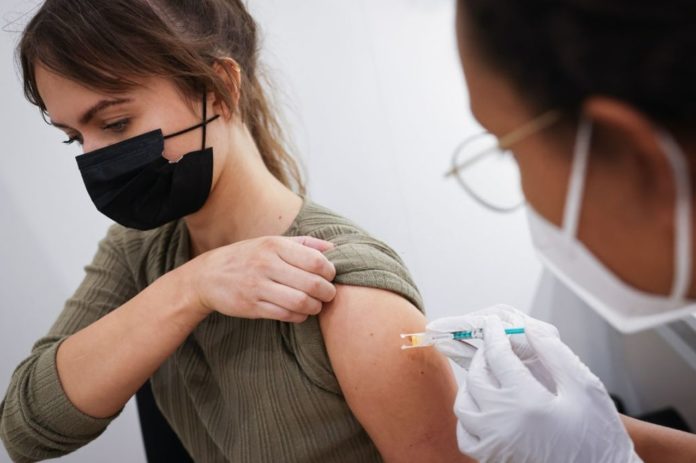A rare heart condition has been identified that is more prevalent in teenage boys, according to a new study.
With alarming evidence indicating that No10 should reconsider their plans to vaccinate 16- and 17-year-olds.
According to new research, boys are more likely to develop uncommon heart complications than teenage girls.
The study, published in JAMA Cardiology, was based on an analysis of 15 children who developed myocarditis following vaccination with the Pfizer vaccine, with only one girl experiencing the same symptom.
- Scientists in Fear of This New Predator From Red Sea Eating Native Species in Mediterranean
- Does This Mean We Stopped Being Animal and Started Being Human Due to ‘Copy Paste’ Errors?
- The One Lifestyle Choice That Could Reduce Your Heart Disease Risk By More Than 22%
- Aging: This Is What Happens Inside Your Body Right After Exercise
- Immune-Boosting Drink that Mimics Fasting to Reduce Fat – Scientists ‘Were Surprised’ By New Findings
According to the researchers, Pfizer’s COVID-19 vaccine is associated with myocarditis, or heart inflammation, with a higher risk for males aged 12 to 17, based on crude analysis.
Between May and July, 15 children were admitted to Boston Children’s Hospital with vaccine-associated myocarditis.
The symptoms began one to six days after vaccination, with chest pain being the most common complaint.
Overall, 13 patients presented with myocarditis via cardiac magnetic resonance imaging.
Three had a decreased left ventricular ejection fraction, and five had global longitudinal or circumferential strain that was abnormal.
Four patients remained symptomatic one to thirteen days after discharge, and one patient developed non-sustained ventricular tachycardia.
One of the asymptomatic cases had persistent borderline low left ventricular systolic function.
“In this case series, in short-term follow-up, patients were mildly affected,” noted the study.
It added: “The long-term risks associated with post vaccination myocarditis remain unknown.
“Larger studies with longer follow-up are needed to inform recommendations for COVID-19 vaccination in this population.”
Myocarditis is an inflammatory condition of the heart muscle that impairs the heart’s ability to pump and may result in rapid or abnormal heart rhythms.
Myocarditis is typically caused by viral infection, according to the Mayo Clinic.
It added: “Sometimes myocarditis can result from a reaction to a drug or be part of a more general inflammatory condition.
“Signs and symptoms include chest pain, fatigue, shortness of breath, and rapid or irregular heartbeats.
“Severe myocarditis weakens your heart so that the rest of your body doesn’t get enough blood.
“Clots can form in your heart, leading to a stroke or heart attack.”
Professor Helen Bedford, a child health expert at University College London’s Great Ormond Street Institute of Child Health, urged parents, not to jab children.
She told MailOnline:
“The real issue here is whether we should be vaccinating children at all.
- Scientists in Fear of This New Predator From Red Sea Eating Native Species in Mediterranean
- Does This Mean We Stopped Being Animal and Started Being Human Due to ‘Copy Paste’ Errors?
- The One Lifestyle Choice That Could Reduce Your Heart Disease Risk By More Than 22%
- Aging: This Is What Happens Inside Your Body Right After Exercise
- Immune-Boosting Drink that Mimics Fasting to Reduce Fat – Scientists ‘Were Surprised’ By New Findings
“Children are at very small risk of Covid so the question is who would benefit if they are vaccinated?”
Photo by Christian Charisius/picture alliance via Getty Images
